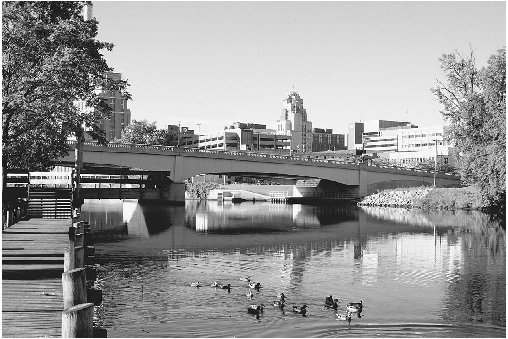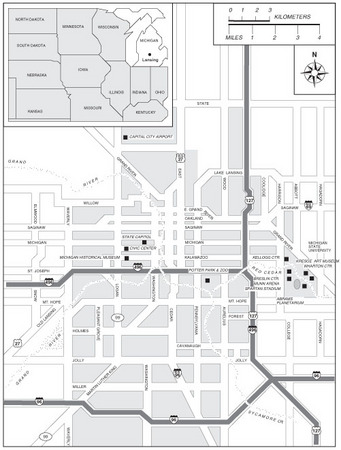Lansing
Lansing: Geography and Climate
Lansing: History
Lansing: Population Profile
Lansing: Municipal Government
Lansing: Economy
Lansing: Education and Research
Lansing: Health Care
Lansing: Recreation
Lansing: Convention Facilities
Lansing: Transportation
Lansing: Communications

The City in Brief
Founded: 1837 (incorporated, 1849)
Head Official: Mayor Tony Benavides (NP) (since 2003)
City Population
1980: 130,414
1990: 127,321
2000: 119,128
2003 estimate: 118,379
Percent change, 1990–2000: -6.4%
U.S. rank in 1980: 122nd
U.S. rank in 1990: 142nd
U.S. rank in 2000: 204th
Metropolitan Area Population
1980: 420,000
1990: 432,684
2000: 447,728
Percent change, 1990–2000: 3.5%
U.S. rank in 1980: 81st
U.S. rank in 1990: Not reported
U.S. rank in 2000: 92nd
Area: 35.24 square miles (2000)
Elevation: 880 feet above sea level
Average Annual Temperature: 48° F
Average Annual Precipitation: 30.8 inches of rain, 48.9 inches of snow
Major Economic Sectors: Government, trade, services, manufacturing
Unemployment Rate: 6.4% (February 2005)
Per Capita Income: $17,924 (1999)
2004 ACCRA Average House Price: Not reported
2004 ACCRA Cost of Living Index: Not reported
2002 FBI Crime Index Total: 6,601
Major Colleges and Universities: Michigan State University (in East Lansing), Lansing Community College
Daily Newspaper: Lansing State Journal
